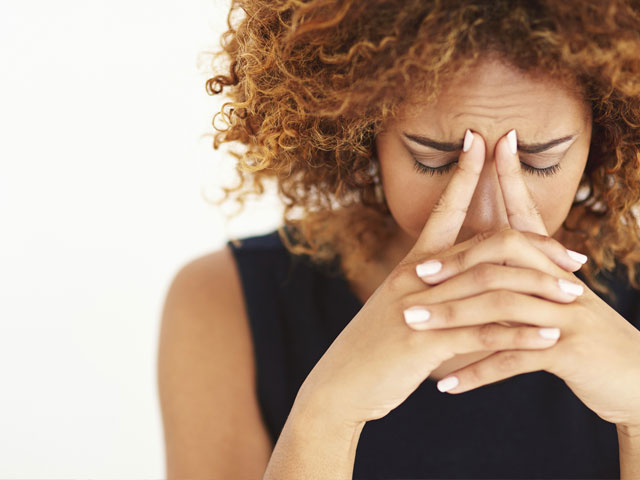
Compiled from Cosmopolitan, here is a list of physical symptoms that you didn’t realise were caused by anxiety.
7 ways to overcome work anxiety
1. Chest pain and heart palpitations
You may think it's a sign of an impending heart attack but it's not. When you feel anxious or are having a full-blown panic attack, the heart beats faster to pump more blood around the body to prepare for fight or flight. This action can cause hyperventilation which leads to breathing in too much oxygen. This, in turn, causes a contraction of the blood vessels which can lead to chest pain.
Chest pain caused by anxiety is often felt across different areas of the chest and comes and goes.
It's also important to note that a rush of adrenaline does not damage the heart.
2. Shortness of breath
The same applies as to why we feel a shortness of breath or pressure in the chest during periods of anxiety. We are also hyper-aware of our breathing which can cause us to 'over breathe' and take on more oxygen.
Parental anxiety, depression may lead to fussy eating in kid
3. Limb and muscle pain
There are lots of ways anxiety can affect the limbs. Firstly, similarly to chest pains, an increased intake of oxygen can cause sensations and pain in the muscles. It could also be caused by tension in the muscles caused by increased stress, while experiencing daily stress can harden the muscles which can cause them to ache or hurt. Feeling anxious can affect the way you hold yourself, sit, lie and walk which, in turn, can change the way your muscles feel.
4. Skin tingling and numbness
It's common for anxiety to cause feelings of numbness and tingling. This can occur almost anywhere on the body but is most commonly felt on the face, hands, arms, feet and legs. This is caused by the blood rushing to the most important parts of the body that can aide fight or flight. This, therefore, leaves the less important areas feeling weak, numb or tingly. It can also be caused by hyperventilation and increased oxygen intake.
5. Temperature: Hotness, sweating, shivering
"The state of arousal also leads to a rise in temperature. Your body reacts by trying to cool you down – this is why you perspire. Such sweating, in turn, can make you feel cold. Especially after a panic attack, as your body starts to cool down but is still perspiring to prevent overheating, it is common to feel cold and shivery.
6. Dizziness
During a period of increased adrenaline and panic, the heart pumps more forcibly, which is associated with a rise in blood pressure. It is this rise in blood pressure that makes us feel light-headed and dizzy.
Picky eating may indicate anxiety in kids
7. Sleep issues
A buildup of stress and tension can make it harder to sleep - as can continuous worry and being unable to switch off. The best thing to do here is try mindfulness or meditation technique to help your mind and body drift into sleep. On the other hand, a panic attack and prolonged periods of anxiety can leave you feeling both physically and emotionally exhausted. You should listen to your body and rest, in this case.
8. Hearing sensations
When you feel anxious and your mind is going at 100mph, it can be hard to focus on the sounds around you. On the other hand, when you are hyper-alert to the potential (if nonexistent) danger around you, you can be extra sensitive to sounds you would otherwise ignore.
9. Blurred vision
It is common to experience blurred vision during an adrenaline surge. This is because the pupils become dilated in order to allow more light into our vision so we are better prepared to fight or flight. More light, however, can also sometime cause blurred vision. It can also be caused by hyperventilation.
Music therapy may ease anxiety in cancer patients: Study
10. Disturbing thoughts
It is common to fear the worst case scenario when you are in a state of anxiety which, for some, is a fear they are going completely crazy. If the anxiety is a new feeling or it is a first panic, the unknown sensations can cause the brain to overthink and worry about the cause.
Have something to add in the story? Share it in the comments below.
1729662874-0/One-Direction-(1)1729662874-0-405x300.webp)


1722421515-0/BeFunky-collage-(19)1722421515-0-165x106.webp)

1732102425-0/Untitled-design-(26)1732102425-0-270x192.webp)
1732087068-0/Untitled-design-(21)1732087068-0-270x192.webp)










COMMENTS (1)
Comments are moderated and generally will be posted if they are on-topic and not abusive.
For more information, please see our Comments FAQ